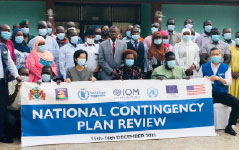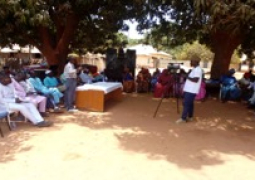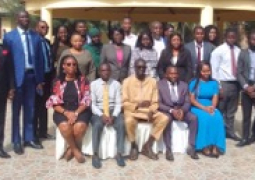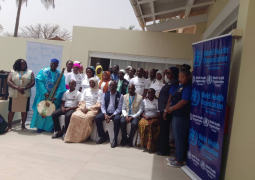
The forum was held at Senegambia Beach Hotel. The contingency plan seeks to ensure a coordinated and efficient humanitarian response to all situations that may affect The Gambia. It is also designed to help the key actors with a vision to solve and respond to disaster related challenges in an effective and timely manner.
Ms. Seraphine Wakana United Nations Resident Coordinator said The Gambia has been vulnerable to hazards for many years.
The review of this contingency plan, she added, would help mitigate if not stop disaster occurrence.
“This workshop is taking place in response to the request made by NDMA earlier this year.
As you all may be aware, The Gambia is prone to a variety of hazards and has been experiencing recurrent disasters over several years especially with the increasing impact of climate change. In fact, the UN Common Country Analysis (CCA) which is the UN systems joint analysis of the development challenges the country is facing shows that the intensity and frequency of these disasters have increased progressively, leading to floods and occasional droughts, and affecting the lives and livelihoods of communities and households.”
This, according to him, is leading to more land and resource-based conflicts due to an increase in informal settlements (slums).
“The analysis also shows that the disasters threaten the long-term economic stability of the country by undermining food security leading to higher food prices at a time when households’ food security status is already threatened by the covid-19 pandemic.” said Ms Wakana.
The government of The Gambia, she added, has been committed to planning and coordinating its response to these disasters.
“For example, in response to the COVID-19 pandemic, the Government, spearheaded by the Ministry of Health with close support from the development and humanitarian community - especially the World Health Organisation has been mobilizing and carrying out a nation-wide and multi sectoral response at an unprecedented level. To give another example, NDMA demonstrated a strong leadership in coordinating relief assistance to the victims of the windstorm that hit the country in June this year. UN agencies through the UN Disaster Risk Management Working Group led by World Food Programme, The Gambia Red Cross Society and NGOs, supported the Government and provided timely support to the affected population.
I therefore commend the government and all partners for their efforts made to provide relief assistance to save the lives of people hit by the disasters.” She added.
The UN Resident Coordinator further explained that with the increasing climate shocks and pandemic, it is crucial for national actors to “own” the updated national contingency plan and new regional contingency plans, by familiarizing themselves with “who does what, when and where”.
Also speaking, Sana A. Dahaba NDMA director of Administration said his agency is committed to providing a common framework for intervention of all partners in disaster preparedness and response to reduce and mitigate the risks to be identified during the two-day technical session on the plan.





